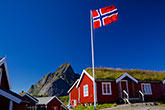Audi site in Neckarsulm chooses LNG for sustainability
Published by Will Owen,
Editor
LNG Industry,
Audi Logistics’ Neckarsulm site has chosen to increase its sustainability by relying on climate-friendly fuel alternatives, even for transports that cannot yet be carried out by rail. From now on, two LNG-fuelled trucks will supply the site.
The two LNG have replaced conventional diesel vehicles and will save up to 20% of CO2 and around 85% of nitrogen oxides.
With the planned comprehensive use of alternative technologies such as LNG trucks, we are pursuing a climate-friendly solution for our logistics transport in line with our cross-site environmental program Mission:Zero. We are thereby laying a further building block for achieving our CO2 goals,” explains Achim Diehlmann, Head of Environmental Protection at the Neckarsulm site.
On the path toward CO2-neutral production, Audi is taking a consistent approach and considering the entire value chain. For example, logistics plays an equally important role as vehicle production itself. The first finished vehicle transports have been conducted with ‘green trains’ via Deutsche Bahn since 2010. In cooperation with Deutsche Bahn, this concept has been expanded gradually and consistently to include material transports and further sites. Further new train concepts are already being implemented. Nevertheless, the infrastructure still requires the use of conventional trucks. Up to three CNG trucks and one electric truck have been in use for local transportation at the site since 2016.
So far, the use of alternative drive technologies for medium distances and long-distance transport has hardly been possible due to a lack of infrastructure as well as technical restrictions. Together with a carrier, transport planner Alexander Graefe at the Neckarsulm site has now found a first alternative to diesel trucks that is also suitable for longer transport distances. The two new LNG-fuelled trucks are now supplying the site with parts for the Audi A6 and A7 models. Another is to be added to the fleet by the end of the year.
“Transport by truck will always play a role in logistics. The question is how green we can make it,” emphasises Graefe.
LNG trucks have already been used successfully at the Brussels site since 2018. LNG as a fuel is an alternative with potential for the future. In the coming years, a fully bio-sourced version is to be available, which will allow 90% of CO2 to be saved per transport as compared to diesel engines.
Audi bundles all of its activities and measures for reducing its ecological footprint in Production and Logistics into its cross-site Mission:Zero environmental program. The focus is on Audi’s key challenges of: decarbonisation, water use, resource efficiency, and biodiversity. One of the key objectives is to achieve CO2-neutral production locations by 2025.
Read the article online at: https://www.lngindustry.com/liquid-natural-gas/17112020/audi-site-in-neckarsulm-chooses-lng-for-sustainability/
You might also like
Gasum opens new biogas filling station in Norway
Gasum has opened its ninth bio-LNG station in Norway, located in Førde.

